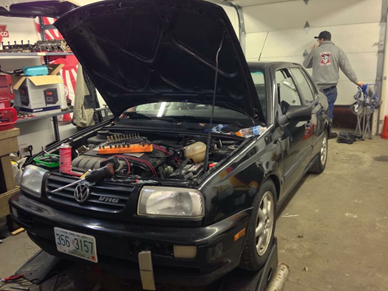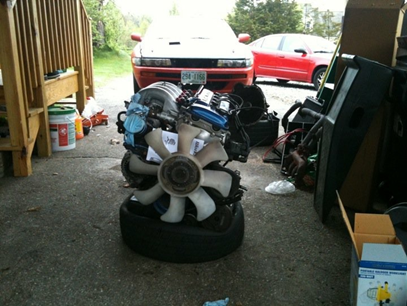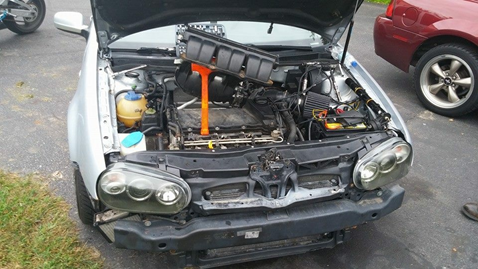Starting your first car project can be a tall order, even for the smallest of tasks. Here are some tips you’ll wish you knew before you started.
1. Start Small, Take It Slow, and Go One Step at a Time

Project cars take time you don’t have and money you aren’t comfortable spending. If the day comes when you decide to build a purpose built race car or restore a ‘55 Chevy, the budget and time frame you have in mind won’t cut it. It all takes time, patience, and an understanding of your goals.
We’ve all seen ads online of projects being sold by the dozen—“Lost interest;” “No time, could use the money;” “My loss, your gain… need garage space.” The ever-so-common broken dream project that you thought would take one year is now going on its third, and it cost you a small fortune and at least one relationship.
My best advice for a first time project is start small, especially if you have a perfectly good car you want to tear apart. Nothing is worse than partially building a car that ran and drove until you touched it and are now selling it for a fraction of what you purchased it for. Instead, do small bolts-ons or visual modifications, and slowly move towards more time consuming projects. Complete your initial work before deciding to take on a “while I’m in here, might as well” type attitude. When you go down that rabbit hole, you will not come back.
2. Use the Right Tool

As you have likely heard at one point or another, using the right tool for the right job is something that I wish I followed, like I do now. Beginners and first-time project owners that are doing work at home likely don’t have a huge tool selection, and at first it may seem like enough, until you actually purchase the correct tool. Doing something as simple as removing an old fuel hose from a steel barb seems easy, and then you fight with it for 5 minutes before cutting it off. The day I purchased a hose plyer kit was the first day I started buying the correct tool. There are hundreds of tools for various jobs that are not hard to find. Going to a local hardware or automotive store can yield some positive results in the tool isles. You can also rent plenty of tools for jobs—preemptive research can be very helpful when going to purchase a tool. Here is a basic tool list I wish I had for an assortment of jobs.
Hose Plyers
Wobble extensions
Socket Swivel
Pry bar set
3/8 Impact gun
Work bench with a vice
A set of throw away sockets, ones to can cut and manipulate.
3/8 Allen (6 point) driver set
Map gas or Propane torch, cheaper aand easier to find than a beginner may think
Pick set
3. Catch Fluids Properly

Over looked by many, catching fluids properly is a huge deal. It may seem easy to just pop off a radiator hose and let coolant flow like the River Nile down your driveway. An engine cooling system retains more water than you’ve probably pictured. I’m not going to go over all the environmental benefits to catching fluid, as we all know and that in of itself is enough to keep fluid off the ground, but what about being even cleaner. Drip pans, pig mats, funnels and fluid catches will save your clothes and the back of your head being covered in fluid. After a long day on your back the last thing you want is the back of your head dripping in oils and small rocks stuck in your hair. Believe it or not it is possible to work on cars and not look like you rolled out of a grease bucket. Efficiently catching fluids is fairly easy, asking questions and looking up different tricks can save you a lot of grief with having to deal dirty clothes and a messed up driveway.
These are just some good things to keep in mind when you get started. Just remember to keep things short and simple in the beginning. You don’t want to end up with a broken down project for sale.
Written by Nick Iosua.